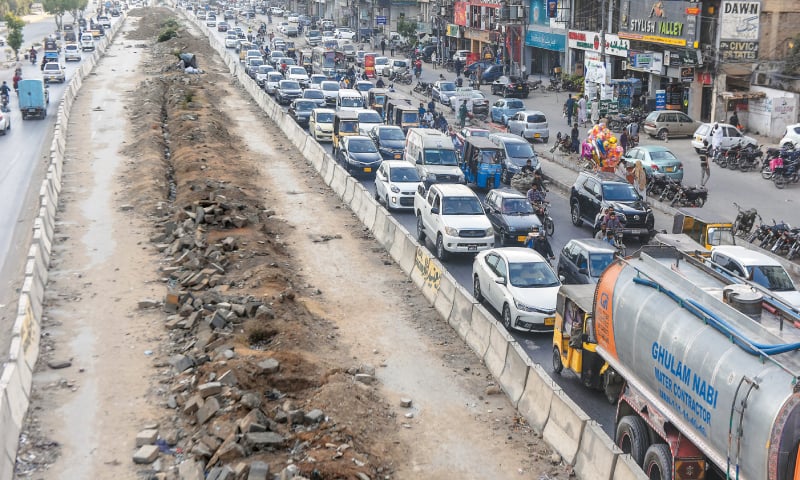In a high-level meeting held to review the progress of Karachi’s Red Line Bus Rapid Transit (BRT) project, Sindh Senior Minister Sharjeel Inam Memon issued a firm directive to K-Electric and other concerned agencies to complete the removal of all obstructing utilities along the corridor by September 15, 2025. The order comes in response to growing concerns over delays in one of the city’s most anticipated public transport projects.
The meeting was chaired by Sharjeel Inam Memon and included participation from key stakeholders such as Secretary Transport Asad Zamin, CEO of Trans Karachi Fawad Ghaffar Soomro, engineers, project consultants, and senior officials of K-Electric. The gathering focused on reviewing obstacles impeding construction and identifying actionable steps to accelerate project completion.
Key Orders and Project Directives
One of the primary concerns discussed was the relocation of utility infrastructure along the Red Line corridor. These include power lines, water pipelines, and other underground systems that intersect the planned BRT route.
Minister Memon instructed K-Electric to complete the transfer and clearance of their utilities by the September 15 deadline. He emphasized that any delay in this relocation effort would negatively impact the entire project timeline, something the government is no longer willing to tolerate.
Furthermore, specific attention was given to the K-4 water project pipeline that intersects a 2.7-kilometer segment of the BRT corridor. The Karachi Water and Sewerage Board (KW&SB) was ordered to expedite the work related to pipeline completion to prevent disruptions in the construction sequence.
Urgency Emphasized by the Government
Minister Memon, while addressing all present stakeholders, asserted:
“The Red Line BRT is a vital public project. It is directly linked to the mobility and convenience of the people of Karachi. We cannot afford further delays, and the relevant departments must act immediately to resolve any remaining issues.”
He reiterated that all involved entities public and private must increase coordination and information-sharing to avoid any missteps or overlaps in field execution. He also emphasized uninterrupted work and the need for cross-agency synergy, ensuring that contractors and consultants are not hindered by bureaucratic hurdles or utility delays.
Progress Overview and Collaborative Approach
During the meeting, project officials presented a detailed briefing on the current status of the Red Line BRT, which spans around 27 kilometers and aims to revolutionize mass transit in Karachi by offering a dedicated, eco-friendly, and efficient corridor from Malir Halt to Numaish.
The meeting explored challenges faced by construction contractors, particularly around areas where utility structures have not yet been relocated. Minister Memon emphasized that all complaints must be resolved in real time through open communication between the contractors and the departments.
Conclusion: A No-Compromise Stance on Public Mobility
The Red Line BRT project is more than just a transportation initiative it represents a new vision for urban mobility, environmental sustainability, and infrastructure modernization in Pakistan’s largest city. With thousands expected to benefit from improved connectivity and reduced travel time, the government has signaled its zero-tolerance policy for further delays.
By setting firm deadlines and encouraging multi-stakeholder collaboration, the provincial administration hopes to fast-track the project’s delivery and meet public expectations. If implemented as planned, the Red Line BRT could set a precedent for future transit projects across the country.



Comments (0)
No comments yet. Be the first to comment!
Leave a Comment